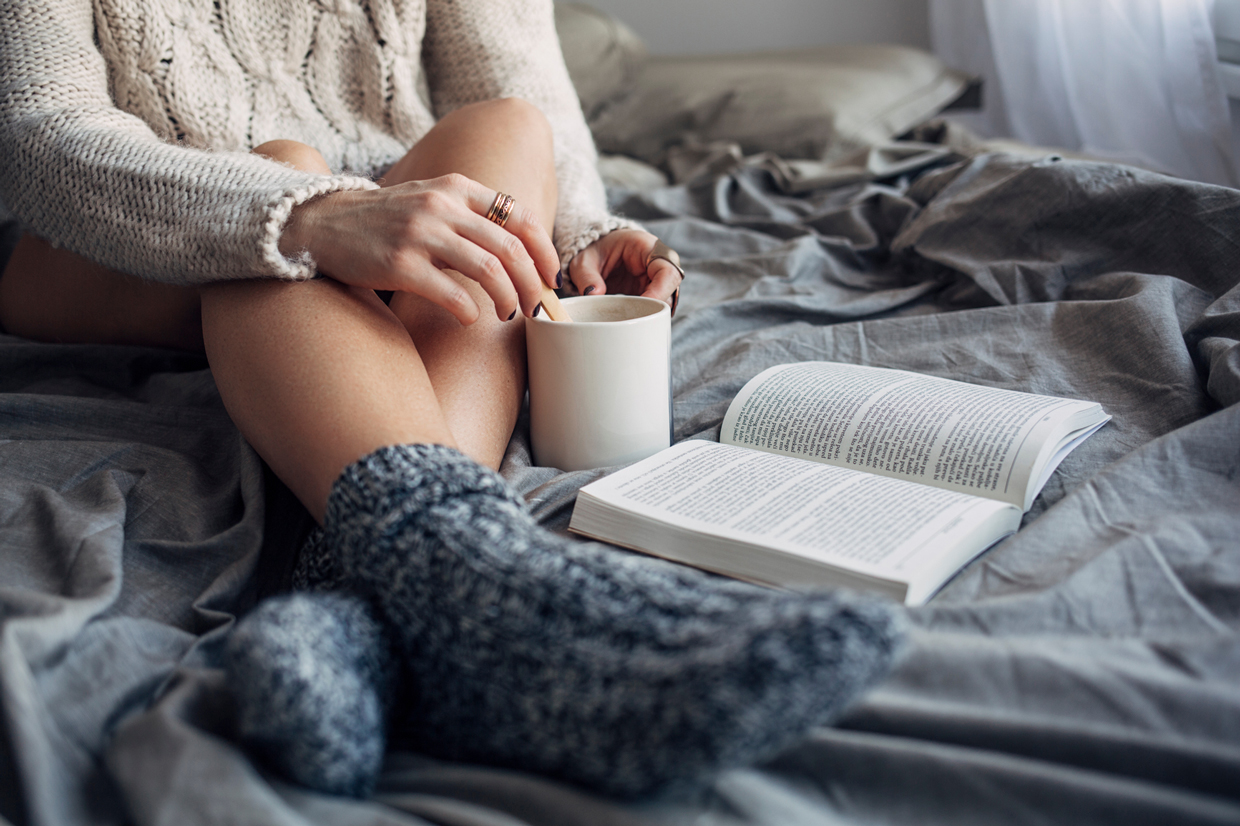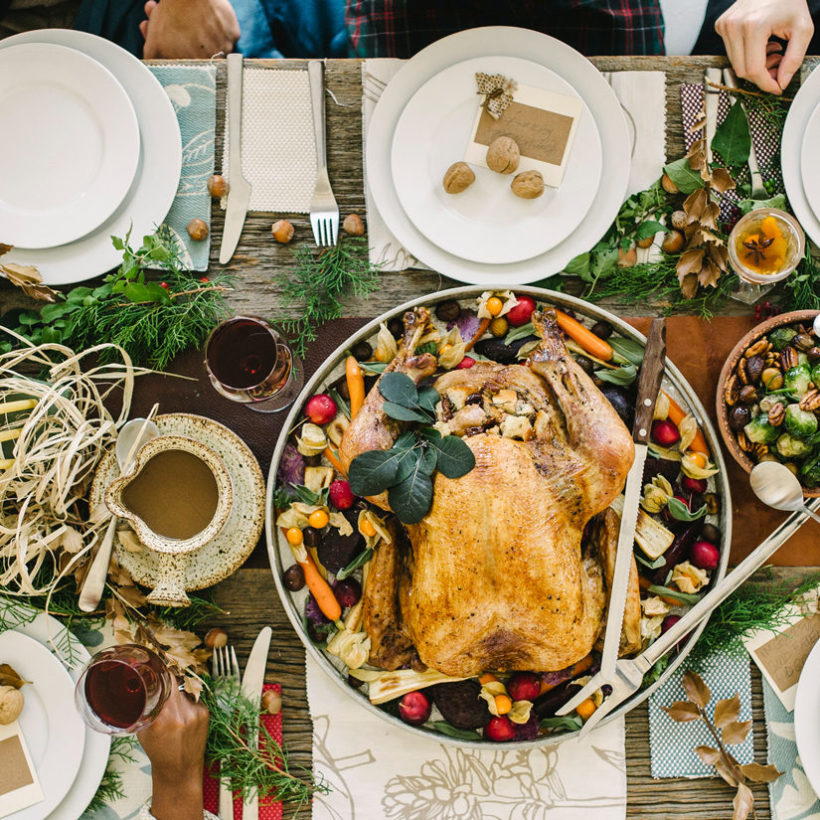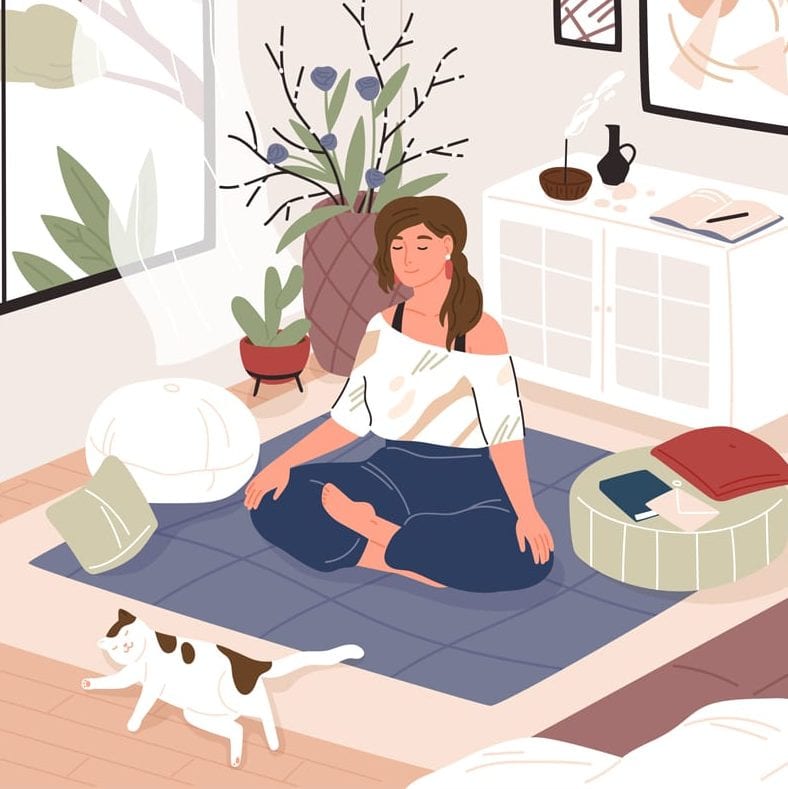As the holidays began approaching this year, I felt profoundly unready for them. The past two years of pandemic isolation have taken a toll on my energy, my bandwidth for planning and executing plans, as well as my ability to socialize.
Once an exuberant extrovert, I now find myself avoiding extraneous chatter — at school pick up, in the grocery store — and craving a return to my home soon after I’ve left it. I’m also easily depleted and out of practice in planning for events, travel, outings. Some of this is undoubtedly the mental health consequences of the past two years. And some comes from a deeper appreciation for a slower pace, a tighter inner circle, and the happiness of a good book and a fuzzy blanket.
I know I’m not alone in this new orientation to life, so I wanted to reach out to mental health experts to better understand what I’m feeling and figure out how to enjoy this holiday season at a slower pace. Here’s what I learned.
What I’m feeling makes total sense
The COVID-19 pandemic has touched all of us in different ways, but it has touched all of us. A study released in January showed that people in five different Western countries were having “PTSD-like symptoms” even if they had not been directly exposed to the virus and that more than 10% of people were “likely PTSD-positive.” We have all been through a collective and prolonged series of traumatic events, and our mental health has suffered. Another study from the Kaiser Family Foundation found that 40% of adults have experienced symptoms of depression or anxiety during the pandemic. As someone who tended toward anxiety most of my life, the pandemic has brought a few symptoms of depression — not enjoying things I usually do and isolating myself from others for example. “One effect of the ‘Covid-induced social constriction,’ is a form of withdrawal from otherwise ordinary or normal social interactions,” says George Pratt, Ph.D., a psychologist in LaJolla, California.
But even folks who don’t show signs of mental distress have adapted to a life much more isolated than most of us are used to. “We have all been through something unprecedented and life-altering,” says Laura Miller, LCSW, a clinical social worker and psychoanalyst in Brooklyn. “Relationships have shifted, daily routines are irrevocably changed due to work moving from in-person to hybrid or remote, and the very centers of public life have been moved. It’s important to slow down and process those shifts.”
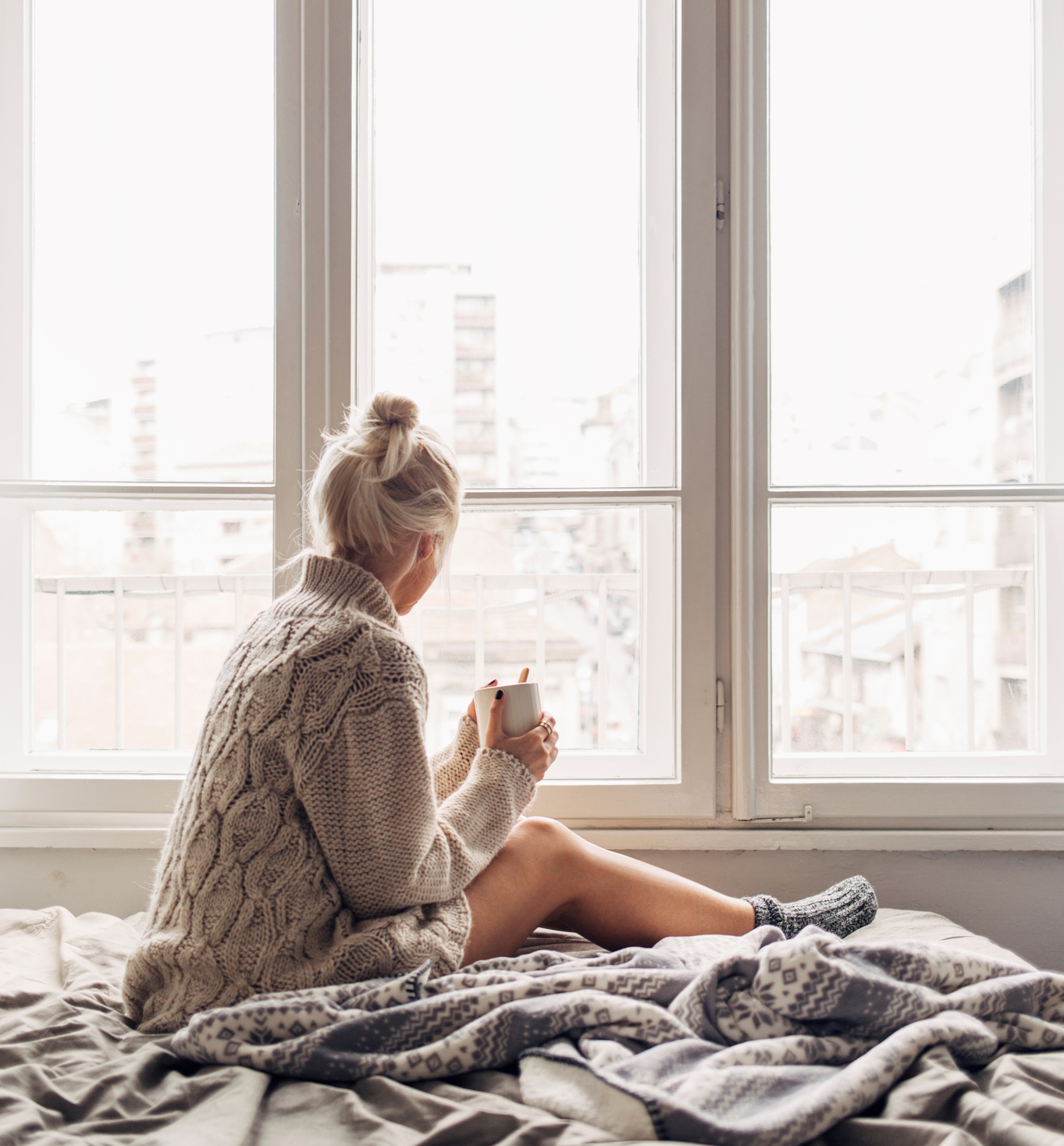
So, I should be kind to myself
“It is important to be aware of feeling overwhelmed and tired,” says Leslie Becker-Phelps, Ph.D., a psychologist in Basking Ridge, New Jersey and the author of Bouncing Back From Rejection, “to understand and have empathy for it and to respond to yourself with compassion.” That can take many forms, from just acknowledging you are going through a hard time to getting really detailed on what you need to feel grounded over the holidays.
When you approach yourself with compassion, “it will seem natural to monitor and give yourself what you need,” says Becker-Phelps. “You will want to engage in the holidays with family and friends to the degree that it feels good or nurturing, but you will also want to limit that engagement when it is too stimulating, exhausting, overwhelming, or upsetting.”
Which means listening to myself
“I know many people are eager to go back to celebrating in familiar ways from before the pandemic, and traditions can be very useful for grounding and reconnecting with relationships,” says Miller. “I hope, however, that those who feel overwhelmed are able to think of approaching the holidays in a somewhat different way that prioritizes connections, with yourself and with others rather than going through the motions to feel ‘normal.’”
In fact, Miller sees some benefit in the emotional reckoning many of us have gone through.
“We were confronted by our emotional needs and limits during the pandemic in very real ways,” she says. “Romantic relationships even fell apart as people weren’t as distracted by work and socializing and really needed one another. I don’t necessarily see that as a bad thing, but rather a confrontation with our more authentic selves.”
Seen in that light, my new penchant for alone time with a good book could be a reaction to the trauma of COVID, or perhaps the pandemic gave me the opportunity to discover the value of time alone. My guess is that it’s a little bit of both. And it’s good information that can help me carve out restorative time over the holidays, whether it means giving myself time between events to be quiet and alone, leaving gatherings earlier for a good night’s sleep, or just recognizing when I need to bow out of socializing.
“If you know you are introverted or depleted by social interactions, you may decide to only attend small social functions or even just get together with only one or two friends at a time,” suggests Becker-Phelps. She recommends thinking — or journaling — about “what feels important to you right now and about the holidays in general.”
If the idea of doing the usual big family gathering feels overwhelming to you, either because of differences in COVID safety or just because you are not ready to interact with your family and friends all at once, listen to how you feel. And then honor it.
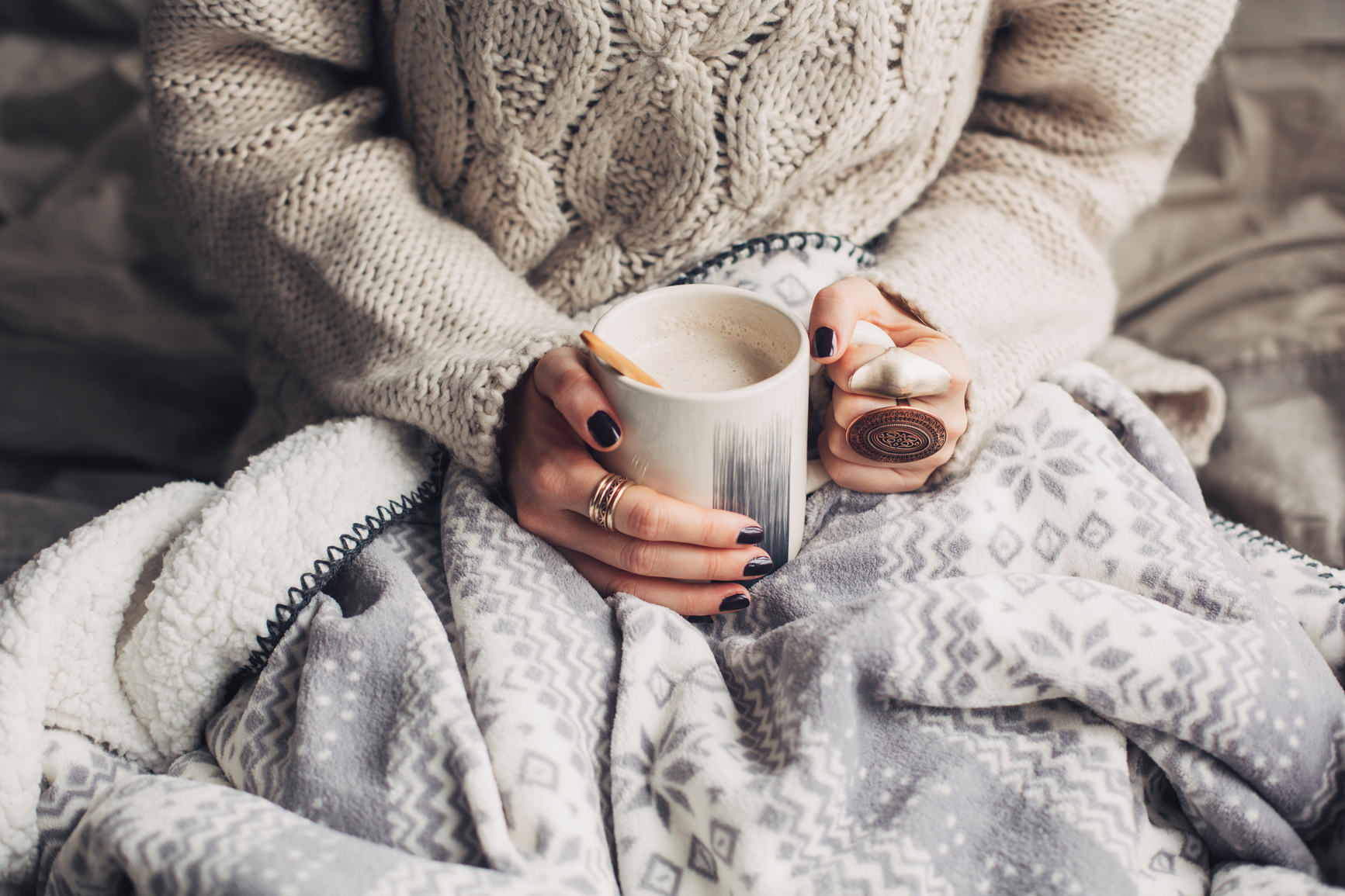
The pandemic has given us good practice in setting boundaries. Keep the ones that are useful.
“Some of the boundaries we had to set because of the pandemic allowed us to experiment with new ways of being,” says Miller. For instance, if you visited family, but stayed in separate spaces for COVID safety, “it’s worth thinking about whether those boundaries actually ended up helping and could be useful in the long term,” suggests Miller. “Since many of us have been wrenched from our usual patterns, there is space to introduce other ways of interacting. It’s ok to set boundaries with family so that time together is less overwhelming and more enjoyable.”
And you can do so in a positive way by “offering an alternative that is within your limits,” suggests Pratt. Still, there may be times when taking care of you means making someone else unhappy. If it happens, says Pratt, “forgive yourself for what might disappoint others.”
Do the small things that rejuvenate you

“It’s important to renew ourselves both during and after holiday efforts,” says Pratt. Pick things that help you relax, unwind and connect with yourself. My top three are meditation (which I will continue to do regularly during the holiday season), reading and resting. My goal will be to incorporate at least one of those each day.
Other ideas include:
- A few minutes of mindful breathing every day — and when the stress tries to sneak in. Try box breathing during which you inhale for four breaths, hold for four breaths, exhale for four breaths and then hold for another four. This easy technique sends a direct message to your nervous system that everything is going to be ok.
- Daily walks or other exercises you enjoy
- Warm baths
- Writing in a journal
- Jigsaw puzzles (these offer a great low-key way to be together)
- Doing a favorite craft
- Listening to music you enjoy
- Getting outside in nature
Changing up long-held traditions or doing less in a culture built on adding more can be challenging, but if it speaks to you, now is a great time to do it. “Many people have used the opportunity of being forced to slow down to look more closely at their lives, such as their relationships and their ways of engaging in the world,” says Becker-Phelps. “It can be helpful to reflect on what we’ve learned, to gain clarity about it, so that we can do a better job of holding onto those insights.”
That’s my plan.
We only recommend products we have independently researched, tested, and loved. If you purchase a product found through our links, Sunday Edit may earn an affiliate commission.
